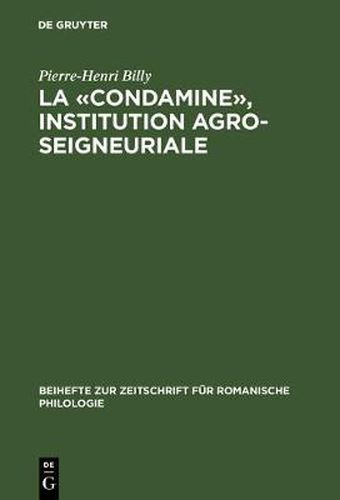Readings Newsletter
Become a Readings Member to make your shopping experience even easier.
Sign in or sign up for free!
You’re not far away from qualifying for FREE standard shipping within Australia
You’ve qualified for FREE standard shipping within Australia
The cart is loading…






This title is printed to order. This book may have been self-published. If so, we cannot guarantee the quality of the content. In the main most books will have gone through the editing process however some may not. We therefore suggest that you be aware of this before ordering this book. If in doubt check either the author or publisher’s details as we are unable to accept any returns unless they are faulty. Please contact us if you have any questions.
The volume is devoted to a study of the word condamine, which stems from the French vocabulary pertaining to agricultural territory of the landed gentry. The study is the first of its kind to examine the word, and analyzes it as a common noun and a proper noun (in names of places and persons) from its origins (6th century) to the present day across the entire geographical area in which it figures (from the Rhine to Catalonia). As such the volume attempts to establish and satisfy the methodological requirements posed by lexical and onomasiological monographs on historical vocabulary.
$9.00 standard shipping within Australia
FREE standard shipping within Australia for orders over $100.00
Express & International shipping calculated at checkout
This title is printed to order. This book may have been self-published. If so, we cannot guarantee the quality of the content. In the main most books will have gone through the editing process however some may not. We therefore suggest that you be aware of this before ordering this book. If in doubt check either the author or publisher’s details as we are unable to accept any returns unless they are faulty. Please contact us if you have any questions.
The volume is devoted to a study of the word condamine, which stems from the French vocabulary pertaining to agricultural territory of the landed gentry. The study is the first of its kind to examine the word, and analyzes it as a common noun and a proper noun (in names of places and persons) from its origins (6th century) to the present day across the entire geographical area in which it figures (from the Rhine to Catalonia). As such the volume attempts to establish and satisfy the methodological requirements posed by lexical and onomasiological monographs on historical vocabulary.